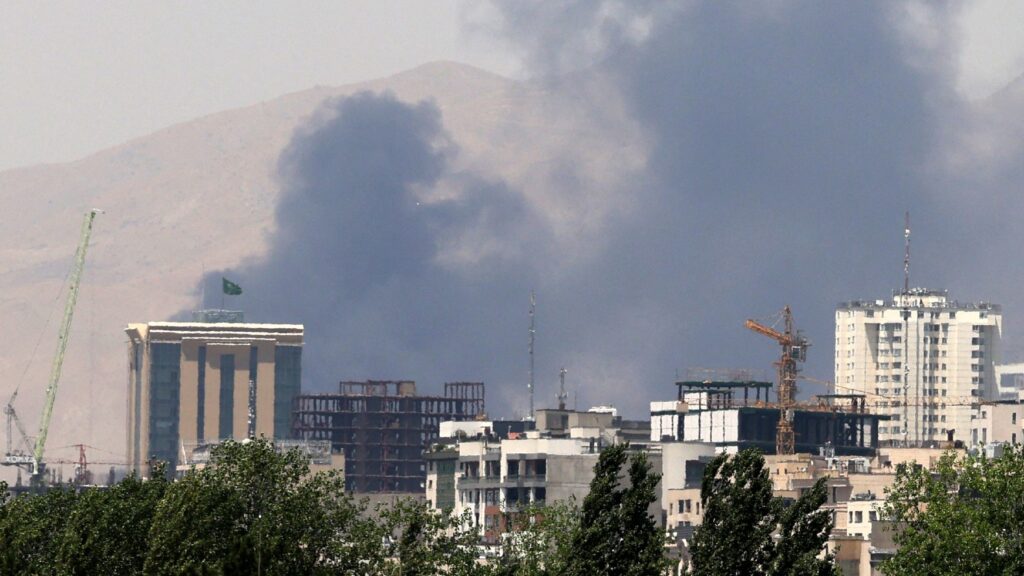The world has seen this playbook before.
A narrative of existential threat. A media chorus that refuses to question. Politicians beating the drums of war, invoking security to justify aggression. It was Iraq then. It’s Iran now.
And yet, in the background, one glaring fact goes unspoken: Israel already has nuclear weapons, and no one is holding it accountable.
Let us lay out the facts.
Iran is a signatory to the Nuclear Non-Proliferation Treaty (NPT) and allows international inspections by the International Atomic Energy Agency (IAEA). It is under constant surveillance and has faced crushing sanctions for even the possibility of nuclear capability.
New MEE newsletter: Jerusalem Dispatch
Sign up to get the latest insights and analysis on
Israel-Palestine, alongside Turkey Unpacked and other MEE newsletters
Israel, on the other hand, is not a signatory to the NPT. It has never permitted IAEA inspections of its nuclear facilities. And yet, it is widely believed to possess approximately 90 nuclear warheads.
It is also the only nuclear-armed power in the Middle East, and has consistently behaved in opposition to international law with its lethal tactics targeting civilians.
Staggering hypocrisy
At this very moment, Israel’s leaders are under investigation by the International Criminal Court (ICC) for genocide. This is not theory or speculation – it is unfolding in real time.

By allowing Israel to bomb Iran, Trump is pushing Tehran to go nuclear
Read More »
Gaza lies in ruins. Tens of thousands have been killed. Children dismembered. Families buried alive. Entire neighbourhoods turned into ash. And the state responsible for this is the same one armed with nuclear weapons and entirely exempt from the very scrutiny it demands for others.
What does this tell us about the so-called rules-based international order?
It tells us that the rules only apply to those without power. It tells us that some nations are permitted to act outside international law, shielded by geopolitical alliances and the silence of their enablers.
It tells us that the same media and political institutions that claimed Iraq had weapons of mass destruction, only to be proven catastrophically wrong, are again failing to ask the most obvious questions.
Why is Israel not held to the same standard as Iran? Or any other nation?
Why is a nuclear power that is actively on trial for genocide not the focus of urgent global concern?
Why are we more afraid of a hypothetical Iranian bomb than an actual Israeli arsenal?
The hypocrisy is staggering. And it is not lost on the rest of the world.
Iraq playbook
The Global South sees it. Muslims see it. The people of Palestine unfortunately have to live it.
And increasingly, people in the West are waking up to the double standards that erode whatever moral authority the United States and its allies claim to hold.
This is not about defending Iran or its record. This is about the consistent and dangerous erosion of international norms.
Israel must be held accountable not only for its actions in Gaza and the West Bank but also for its nuclear arsenal
If the international community truly cares about non-proliferation, then all nuclear states must be held accountable – especially those who refuse transparency, commit war crimes, and stoke regional instability.
If Israel continues to receive a blank check for both its violence and its weapons stockpile, then the NPT becomes meaningless. The IAEA becomes toothless. And every future “red line” becomes just another shade of hypocrisy.
So with moral clarity on this issue for any moral human being, it should be easy to say: Israel must be held accountable not only for its actions in Gaza and the Occupied West Bank but also for its nuclear arsenal.
We cannot let the world be dragged into another war, propped up by false pretenses and selective enforcement.
The Iraq play book should have been retired long ago. But if it’s coming off the shelf once more, then so must our collective resistance to it.
To question this double standard shouldn’t be radical. To ignore it shouldn’t be so typical.
The views expressed in this article belong to the author and do not necessarily reflect the editorial policy of Middle East Eye.

